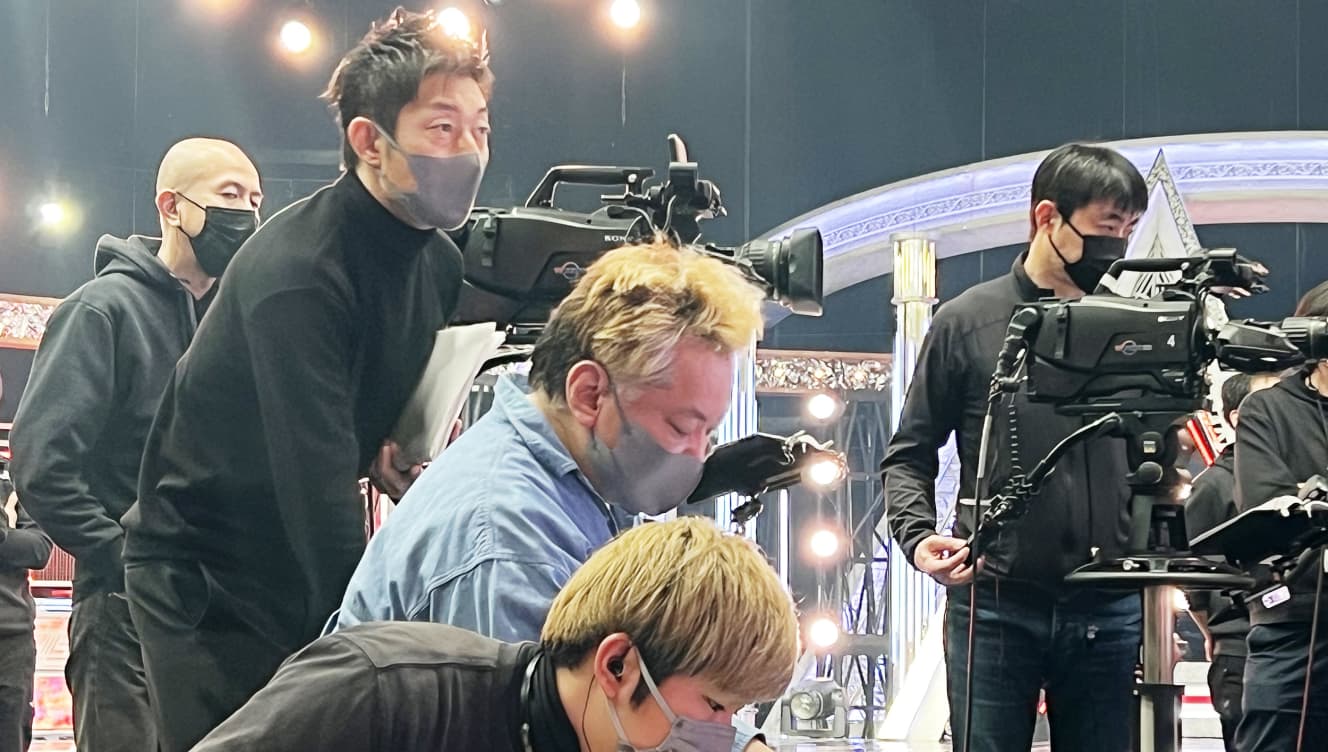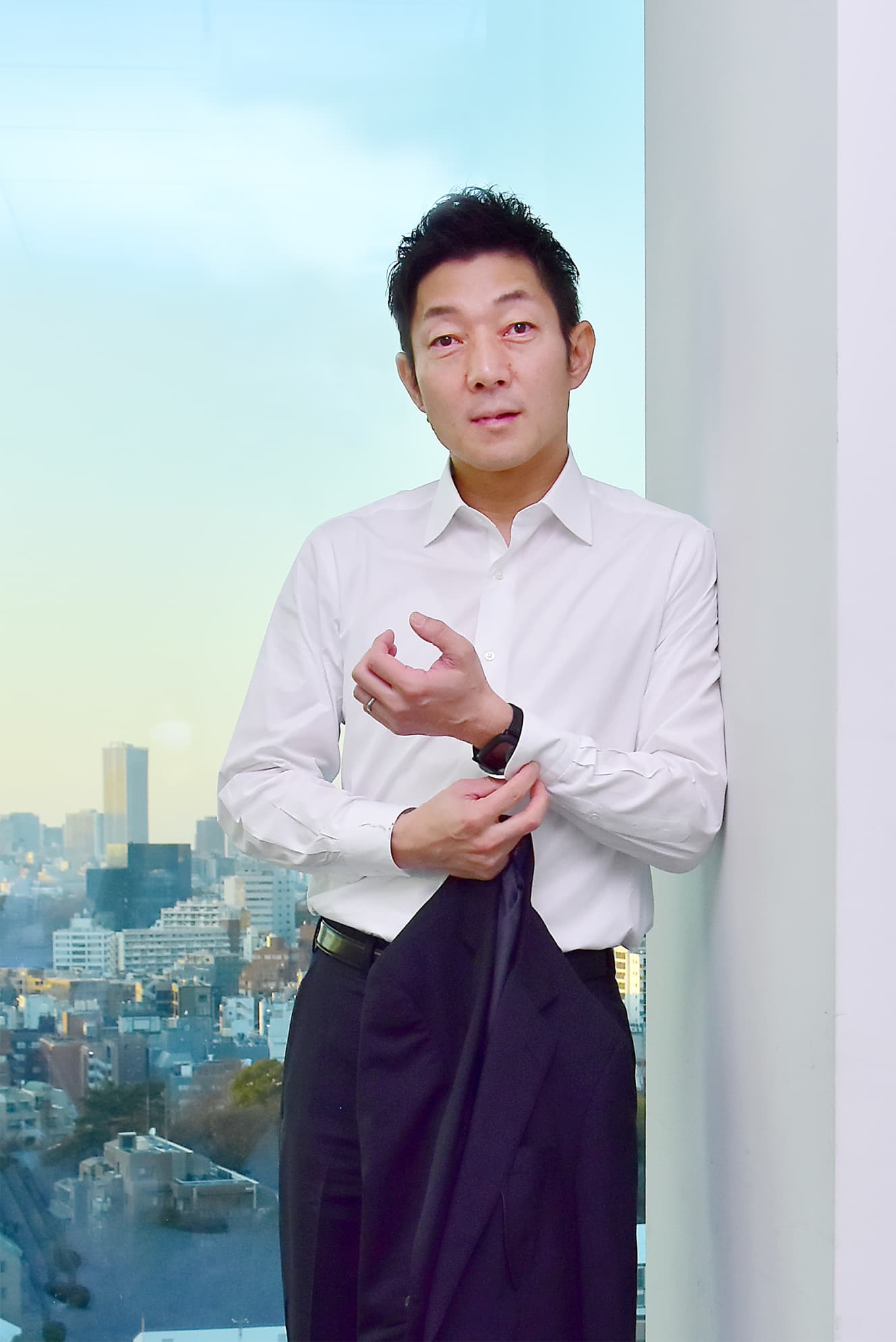TV TOKYO’s charismatic Executive Producer, Takayuki Ito, says, “TV workers should be freer!
Former boss of famous P-producers such as Nobuyuki Sakuma and Hiroki Takahashi, creator of "Ike no mizuzenbu-daru" and "Moya moya samazu 2

I was asked to write a management book, but I said, ‘Not now.
Mr. Takayuki Ito, 50, of TV Tokyo, nicknamed “Ito P” for his appearances on “Moya Moya Samaazazu 2,” dutifully appeared at the interview location saying so. He is a charismatic producer who has not only produced numerous hits, but has also nurtured a number of prominent junior producers, including Nobuyuki Sakuma (47), who worked on “Godtan. How does Mr. Ito see the turbulent world of television, with the rise of Internet TV and distributed programs, and a succession of independence and transfers of famous TV personalities from various stations? We interviewed the charismatic producer directly.
In ” Ito P no Moya Moya Shigoto Jutsu” (Shueisha Shinsho), published in 2011, Mr. Ito noted that TV TOKYO has different ideas and senses from other stations, and wrote, “I value the grammar of TV TOKYO very much. When asked if the “TV TOKYO grammar” has changed over time, he replied, “It may have become stronger. In terms of the method of planning and creating programs, the basic principle of ‘searching for what is not there’ has not changed,” he says.
Content is meaningless unless people see it. It has to make people look at it twice, or make them think, or be in a way that is easily recognizable and appealing, such as in a project, in a title, or on the cover of a magazine! It has to be immediately obvious and appealing.
The clue, he says, is in the everyday.
If you catch something that you would normally let slide and keep it in your mind, it will lead to a project. It’s a way of saying, ‘I’ve wondered about that too! If you can get one person in a hundred or even one person in a thousand to strongly empathize with you, then you have a hit on your hands.”
One of Ito’s best-known works, “Emergency SOS!
The news story narrated, “The police are searching for the pond by lowering the water level. ‘”
Ito laughs, “My colleagues have always teased me, saying that TV TOKYO is good at taking things down.
I have complained that TBS is so blatant in its copying that I have told them, ‘You have to do better! I once complained, ‘TBS has to do better than that! TV TOKYO is willing to be taken down and teased. Even if they take away our projects, I believe that true originality will remain in the end.
Mr. Ito pointed to “Can I Follow You Home?” by Hiroki Takahashi, 41, a producer who left TV TOKYO at the end of February, as a work that has originality of its own. a popular variety show. It is a popular variety show, but Ito said he feels that Takahashi has a talent as a documentarist.
Hiroki Takahashi is the type of person who enjoys making anything interesting, but that changed with “Can I Follow You Home? changed him. I would say that his passion as a documentarist came out. I think it’s amazing that he found a format that, after reading it, says, “If I put ‘Let It Be’ on, everything falls into place.
Heat is the key word that Mr. Ito values. The hit “Ike no Mizu” was also initially met with great opposition within the company, and the director of the programming department and he even got into a shouting match at a meeting.
Mr. Ito said, “Without reaching a resolution, I went out to dinner with the head of the programming bureau. I went to dinner with the head of the programming bureau without reaching a decision. He said, ‘How about TV doing it for someone else? The proposed title was “Drain the Water,” but we added “Emergency SOS” at the beginning and “Operation” at the end–that’s how we came up with the name for the “Pond Water” program. It was a struggle, but they thought it through. From there, the halation happened and the plan was refined. It’s like the location gods come down, and a program that works well has some kind of human reaction.”
Mr. Ito has since been actively interacting with people within the company to “eliminate first-time encounters,” and he encourages his subordinates to do the same.
I think TV stations should become content makers. Not only distribution, but also product development, such as product sales, is content. When I think about it, the number of people I can work with, even within the company alone, has increased tremendously, such as in events and sales. Now is not the time when 7 out of 10 people turned on the TV. Where to create touch points is also important. We are a company that is allowed to do localized content, such as a big meal or an appraisal of the contents of a warehouse, so in this day and age, we need to make it into a program. Making it into a program? There is no need to think only about “making it into a program. I tell my juniors, ‘You can forget about TV once.
Mr. Ito heard that an outside sales representative for BS, who was in charge of highway-related sponsors, was “struggling with a low budget. He called on the production department to solicit 90-minute projects, and within a week, 30 were submitted. In the end, my project was accepted. My plan was accepted (laughs).
It was Mr. Ito who drew Mr. Sakuma, who had been in the drama team when he first joined the company, into the variety business.
I wasn’t very good at comedy, so I asked him if he wanted to try comedy. He seemed very happy when I asked him if he wanted to try comedy. And since he seemed to like cool things, I gave him the title of ‘general director,’ which the station didn’t have. We were both still in our twenties, and everyone around us scolded us for being so arrogant, but he was in high spirits.
He would recognize a character and change the way he said things and the points he needed to convey depending on the person he was talking to. If you only throw the same pitch, you can’t catch the ball. We are different people, so it’s natural, isn’t it? Mr. Ito laughed.
We should just be the beast of prey.
However, the departure of prominent producers, including Mr. Sakuma in March of two years ago, Mr. Ryohei Kamide (34) in June of last year, and Mr. Takahashi in February of this year, has left the company. What do you think about the exodus of human resources as a manager?
I feel sad ……, but there is no reason to hold them back. I would rather give them a push. TV stations should become a culture where talent metabolizes rapidly. They can work together even if they quit, and they should be able to grow bigger on the outside. TV people are creators, too, and they should be more free. If there is something that can’t be done at the station, and if you can see a view outside the station where you can do it, you should go ahead. I will think about it, and if I no longer enjoy the current environment, I will quit. Executive producer is the first title I’ve held since the station opened, and when I asked one of the top executives, “Are you the kind of person who would be bothered if you quit? He told me honestly, ‘That’s part of it.
As long as Charisma has a smile on her face, the “TV TOKYO grammar” will continue to be handed down.






From the March 24, 2023 issue of FRIDAY
Interview and text: Miho Kuwata PHOTO: Takeshi Kinugawa